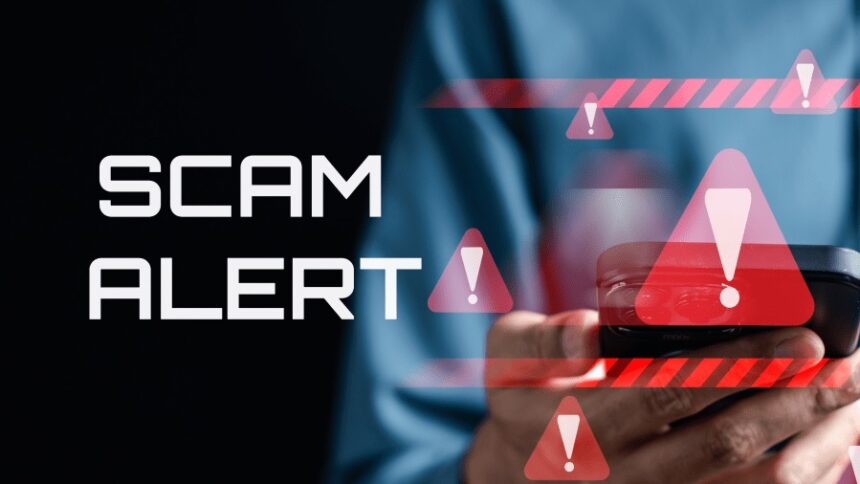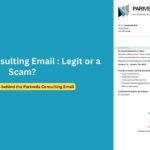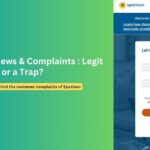As New York State continues its massive transition of over 220,000 CDPAP consumers to the new fiscal intermediary, Public Partnerships LLC (PPL), scammers have wasted no time in exploiting the confusion surrounding this change. A new wave of text message scams is targeting both consumers and personal assistants involved in the Consumer Directed Personal Assistance Program, putting vulnerable individuals at risk of fraud and identity theft.
This comprehensive guide aims to help CDPAP participants identify these PPL First scams, understand their patterns, and protect themselves during this critical transition period.
Understanding the CDPAP Transition
Before diving into the scam details, it’s important to understand the legitimate transition that’s currently underway. According to the New York State Department of Health, as of April 14, 2025:
- 87% of CDPAP consumers (more than 190,000 people) have completed registration with PPL
- Over 245,000 personal assistants have started their registration process
- 160,000 personal assistants are fully onboarded and payroll-ready
- Nearly 110,000 personal assistants received their first paychecks from PPL for the April 1-5 pay period
This massive administrative shift has created an environment ripe for scammers who thrive on confusion and urgency.
Overview of the PPL First CDPAP Text Scam
The current scam operation follows a calculated pattern designed to exploit those unfamiliar with the official procedures. Scammers are impersonating PPL First by sending text messages claiming there are errors or problems with registration, then directing recipients to call unauthorized phone numbers.
Common Message Patterns
These fraudulent messages often share similar characteristics. Here are some examples of what these scam texts might look like:
URGENT: PPL CDPAP has detected an error in your registration process. Your benefits may be suspended. Call (XXX) XXX-XXXX immediately to resolve this issue.
PPL NOTICE: Your CDPAP enrollment is incomplete. Final deadline approaching. Call our support team at (XXX) XXX-XXXX to avoid service interruption.
ALERT from PPL First: Your timesheet verification has failed. To continue receiving payments, call our verification department at (XXX) XXX-XXXX within 24 hours.
These messages typically create a false sense of urgency, suggesting that benefits or payments are at immediate risk.
Red Flags: How to Identify CDPAP Scam Texts
Protecting yourself starts with recognizing the warning signs. Here are key red flags that indicate a text message about CDPAP might be fraudulent:
- Unsolicited Communication: PPL typically communicates through official channels after you’ve initiated the registration process.
- Urgent Language: Words like “URGENT,” “IMMEDIATE,” “CRITICAL,” or claims that your benefits will be suspended are designed to pressure you into acting quickly without thinking.
- Unofficial Phone Numbers: Any phone number that differs from the official PPL support line (1-833-247-5346) should be treated with suspicion.
- Requests for Personal Information: Legitimate PPL representatives won’t ask for your full Social Security Number, complete banking details, or passwords via text or unsolicited calls.
- Grammar and Spelling Errors: While not always present, many scam messages contain suspicious grammar, unusual capitalization, or spelling mistakes.
- Generic Greetings: Messages that don’t include your name or specific information about your case may be mass-sent scams.
- Suspicious Links: Links in text messages that lead to websites not ending in pplfirst.com or ny.gov domains should be avoided.
Protecting Yourself from Fake PPL First CDPAP Transition Texts
Taking proactive steps can significantly reduce your risk of falling victim to these scams:
Verify All Communications
- Use Official Channels Only: Only call the official PPL support number: 1-833-247-5346 (or TTY: 1-833-204-9042)
- Check the Website: Visit the official website directly by typing pplfirst.com/cdpap into your browser (don’t click links from texts)
- Contact Your CDPAP Facilitator: If you’re working with an approved facilitator, reach out to them directly with any concerns
Safeguard Your Information
- Never Share Sensitive Information via text, email, or unsolicited phone calls
- Set Up Account Alerts: Monitor your accounts for unusual activity
- Create Strong, Unique Passwords for any online accounts related to CDPAP
- Enable Two-Factor Authentication where available
Report Suspicious Activity
If you receive a suspicious text or call:
- Don’t Respond or Call Back
- Take Screenshots of suspicious texts before deleting them
- Report the Scam to:
- New York State Department of Health: 833-947-8666
- Federal Trade Commission: ReportFraud.ftc.gov
- Your local police department if you’ve shared personal information or lost money
What To Do If You’ve Been Scammed
If you believe you’ve fallen victim to a CDPAP transition scam:
- Contact Your Financial Institutions immediately to freeze accounts or stop payments
- Place a Fraud Alert on your credit reports with all three major credit bureaus
- File a Police Report with your local law enforcement
- Change Your Passwords for all accounts
- Monitor Your Credit Reports for any suspicious activity
Frequently Asked Questions
1. Is PPL First CDPAP Transition Text Legit?
Not typically. PPL First rarely initiates communication via text message about registration errors or account issues. Any text claiming to be from PPL that asks you to call an unfamiliar number should be treated with extreme caution. Always verify by calling the official PPL number directly at 1-833-247-5346.
2. How is PPLFirst.com Officially Communicating with Consumers and Personal Assistants?
PPL First primarily communicates through:
- Official letters
- Emails from verified pplfirst.com addresses
- The Time4Care app
- Direct phone calls from 1-833-247-5346
- Their official website: pplfirst.com/cdpap
3. What Should I Do If I’m Unsure About a Communication I Received?
If you’re uncertain about any communication claiming to be from PPL, ignore the contact information provided in that message. Instead, call the official PPL support line at 1-833-247-5346 or contact the NY Department of Health CDPAP transition helpline at 833-947-8666.
4. Can Scammers Access My CDPAP Benefits?
Scammers cannot directly access your CDPAP benefits without your personal information. However, if you share sensitive information like your Social Security Number, account details, or passwords, they may be able to commit identity theft or financial fraud.
5. Do I Need to Respond Quickly to Messages About Registration Deadlines?
While there are legitimate deadlines in the CDPAP transition process (such as the May 15, 2025 registration deadline established by the federal court agreement), legitimate communications will come through official channels and won’t typically demand immediate action via text message. Always verify deadlines through official sources.
The Broader Impact of CDPAP Scams
These scams don’t just harm individuals—they undermine the entire transition process. When people become wary of all communications, including legitimate ones, it can slow the registration process and create additional confusion.
The CDPAP program serves some of New York’s most vulnerable populations, including elderly and disabled residents who rely on personal assistants for essential daily care. By targeting this population, scammers are not just committing fraud—they’re potentially disrupting critical healthcare services.
Conclusion: Staying Vigilant During the Transition
The transition to PPL First as New York’s CDPAP fiscal intermediary represents a significant change affecting hundreds of thousands of consumers and personal assistants. While this change aims to address program costs and prevent fraud—ironically, it has temporarily created new opportunities for scammers.
By staying informed about the official processes, recognizing the warning signs of scams, and knowing how to verify communications, CDPAP participants can protect themselves during this transition period. Remember that legitimate representatives will never pressure you for immediate action or sensitive information via unsolicited texts or calls.
If you haven’t yet completed your registration with PPL First, remember that according to the federal court agreement, all consumers must complete registration by May 15, 2025. Use only the official channels mentioned in this article to ensure your transition is smooth and secure.
The road to a more efficient and fraud-resistant CDPAP program requires vigilance from all participants. By working together to identify and report scams, we can help protect our communities’ most vulnerable members while ensuring the continued success of this vital program.
This article is for informational purposes only and does not constitute legal or financial advice. If you believe you’ve been the victim of fraud, contact law enforcement and appropriate financial institutions immediately.
































